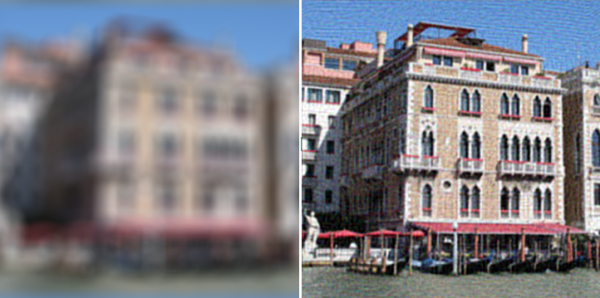SmartDeblur is an amazing photo tool

Just about every photo editor includes a simple “sharpen” function, which analyses the pixels of an image in an attempt to reduce blur and recover a little detail. But although the standard sharpening technology is fast and easy to use, it only really works with mild blurring; if your image is seriously blurry then you’ll probably get nowhere at all.
The solution? Forget basic sharpening, to deal with significant blurring you need a far more powerful tool. And SmartDeblur is an excellent free candidate.
The program is portable, so very convenient to use -- just download, unzip and you’re ready to go.
And SmartDeblur’s basic operation is straightforward, too. Open an image, choose the type of blur you’d like to correct (Out of focus, Motion, Gaussian), and drag a couple of sliders. A preview window shows you the results, and when you’re happy you can save the sharper image as a PNG file.
One immediate problem here is performance. Every time you drag the key sliders, there’s a lengthy delay while SmartDeblur carries out some complex deconvolution maths and displays the new preview (up to 70 seconds on our test PC, even with a relatively small 1544×1024 test image). And when you consider you might want to tweak your settings 10, 20 times, that really can be an issue.
By way of compensation, though, the results can be astonishing. Even with the blurriest of our test photos, objects reappeared, faces became recognisable, text was sometimes readable again. The process introduces noise, too, so don’t expect perfection, but the finished images were vastly better than the originals (and a significant improvement on anything that regular “sharpening” can achieve).
If you’d like to read more about how the program works its magic, an article on the author’s website provides some useful details. (There’s plenty of math and deconvolution theory, but if that’s too much just checking out the sample images will give you a better idea what can be done.)
This isn’t a program you’ll want to use with mildly blurred images, of course. There’s no need: it’s too slow, and regular sharpening filters will probably be enough.
If you’ve got an image which is too blurred for your standard correction tools to deal with, though, it’s worth giving SmartDeblur a try. You’ll need plenty of patience as you wait for each preview, but it’s often worth the wait, as the program can recover an amazing amount of detail from even the poorest of photos.
